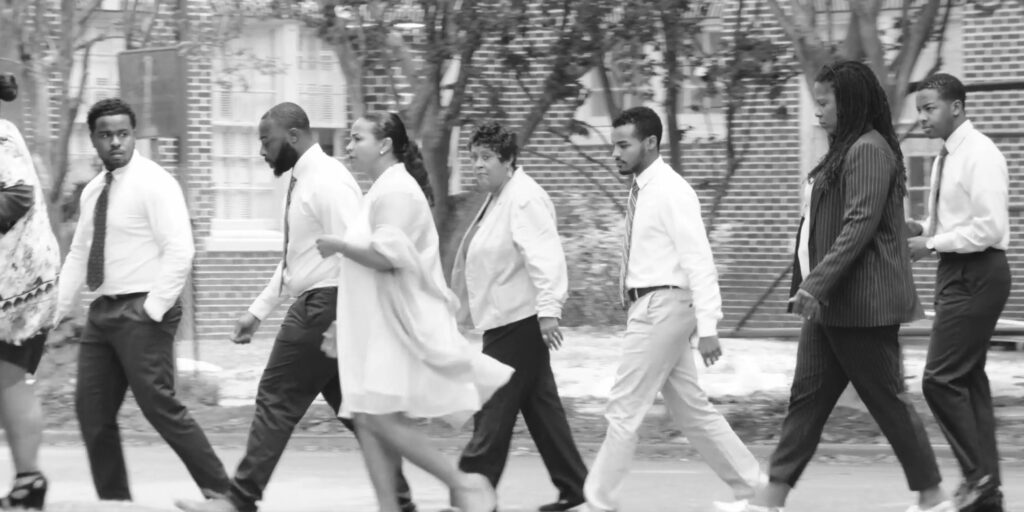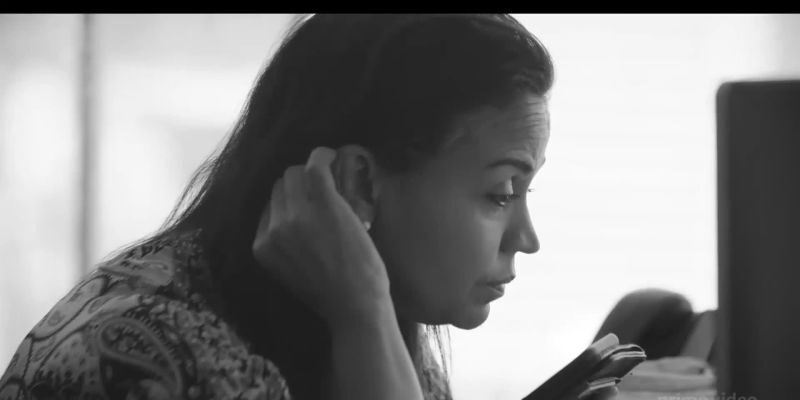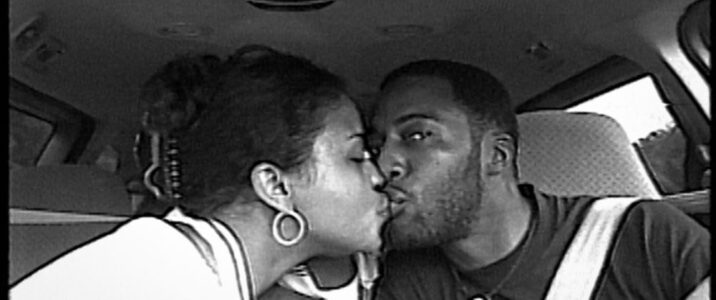In discussing the prison-industrial complex, a major talking point (as well as a firmament in the argument for prison reform by activist groups) is the disproportionate number of people of color who have been incarcerated. But what often tends to slip through the cracks in these discussions is the effect on family members of those serving time. The documentary, Time, sheds light on that experience, creating an empathetic portrait of a family attempting to overcome obstacles the law throws at them and reunite with a husband and father doomed to live a life behind bars.
The movie’s central figure is Fox Rich, a married mother of six children living in New Orleans. She wed her high school sweetheart, Rob, who she met when she was 16. They initially moved to Shreveport with hopes of opening their own hip-hop clothing store. Fox recalls their struggle to raise the money until, out of desperation, they attempt to rob a bank. As she solemnly states, “Desperate people do desperate things.”

They were inevitably caught by the authorities, and on June 15th, 1999, both were sentenced to 60 years without probation, parole or suspension of sentence. Fox was able to have her time reduced to three and a half years. However, by the start of the film, Rob is still serving his sentence, leaving her to raise their children on her own, managing to make an honest living as an activist, writer and public speaker, all while fighting for her husband’s release before their children grow up.
In less capable hands, Time, might have risked coming across as a saccharine tearjerker about one woman fighting for the man she loves. But what director Garrett Bradley does so wonderfully is depict the effect her husband’s absence has not only on Fox, but on each of their children. That absence can be felt in moments where we see a cardboard cutout of Rob the family keeps propped up in the hallway until he comes home.
Through an extensive selection of archival home videos shot by Fox herself on mini DV camcorders for nearly two decades, we see how her family has coped with living this way for so long. In a brilliant match cut, Bradley shows one of her sons ironing his shirt all by himself from a young age, leaping forward years later filming him doing the same action as he enters manhood.

Time does not condone Fox for her actions, but it still offers an abundance of compassion for her. We warm up to the tenacity, inherited from her no-nonsense mother, fueling the love she has for her family. We see how she and her sons playfully tease each other; when one of her sons, Justus, demonstrates his French in preparation for his trip to Angola, she tells him in a motherly waggish tone how sexy it sounds. In another, more heart-rending moment from one of her early home movies, Fox records a message to Rob telling him how she looks forward to the day when she sees him again in court. She closes her eyes, as if she can feel his presence in that very moment, her longing so palpable that it leaves her and us emotionally shaken.
Twenty years later, her love still perseveres in the face of systemic racism. While not explicitly devoting its attention on the statistics of incarceration or the treatment of black prisoners by the justice system, the film still visibly critiques it as Fox’s attempts to reduce her husband’s sentence are met by one bureaucratic roadblock after another. Conversations with officials from the Judge’s office are met in kind by clinical condescension. As Fox bitterly observes the irony in having state funds cut in every program, apart from prisons, moments like these in Time force us to contend with the lasting legacy of slavery ensured through racist carceral practices, one which continues tearing countless families apart.
This intimate perspective leaves viewers with a greater desire for change, and when it reaches its bittersweet yet ultimately uplifting conclusion, the film helps us believe that a kinder, more just future is on the horizon. Time‘s closing montage, rewinding the collection of Fox’s home movies all the way back to the very beginning display a family scarred by the painfully irreversible omission of a spouse and patriarch. It also showcases, however, a powerful foundation of love that would fuel their decades-long determination in successfully reuniting with a cherished kinsman, overcoming a segregating judicial system, and, as Fox expresses her hopes, that it will lend the groundwork for other divided families the chance to reform as whole again.
